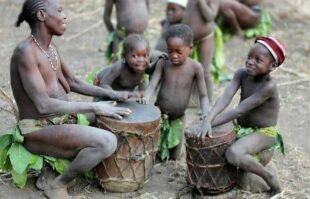Nigeria is a conglomeration of over 250 ethnic groups, most of which have three dominant religions: Christianity, Islam, and traditional religion. Although, in recent times, people are often seen either going to church for one program or the other or going to the mosque for solah, and on special occasions like Ramadan or Eid-il-Kabir. It is no longer news that two of these religions are prevalent in the country and, as a result of a lack of tolerance and understanding of religion, have caused religious conflicts in some states.
Several controversies have ensued as to why we have religious extremists and why Nigerians are keen to killing themselves over the white man’s religion when the traditional religion is allowed to go into extinction. Before colonization, scholars and cultural enthusiasts believe that Nigeria was developing at its own pace and had its own cultural heritage, including traditional rites, values, and beliefs, which had guided many generations before the advent of imperialism.
Religion, according to clerics, is a guiding principle that helps manage the conduct of people. To them, God, or Allah, is the saviour of the world, the protector and the supreme being. But before colonization, “Ésu, Maguzawa, or Odinani” were their saviours, whom they could seek for help in their day-to-day activities.
Also, it is worthy of note that even among those who practice the same religion, there is diversity and restrictions, which usually results in crisis. For instance, the Christian faithful have different denominations; Catholics, Adventists, Pentecostals, Celestials, etc. The Islamists, on the other hand, have the Sunni and Shia sects.
In short, religion, which has been and continues to be a source of internal strife in Nigeria, is one of the causes of the country’s crisis. And because a higher percentage of people do not know the origin of religion and its effects on their social system, it has continued to cause havoc in the socio-economic system of the country.
However, despite the fact that colonization has resulted in the dominance of Christianity, particularly in Southern Nigeria, traditional religions are still practiced by some of the people who still adhere to them, Islam has long spread due to the Fulani Jihadist war campaigns of Usman Dan Fodio, particularly among the Hausa in the north before the British arrived.
In this historical piece, Naijabiography explored the story behind religion in Nigeria before and after colonization.
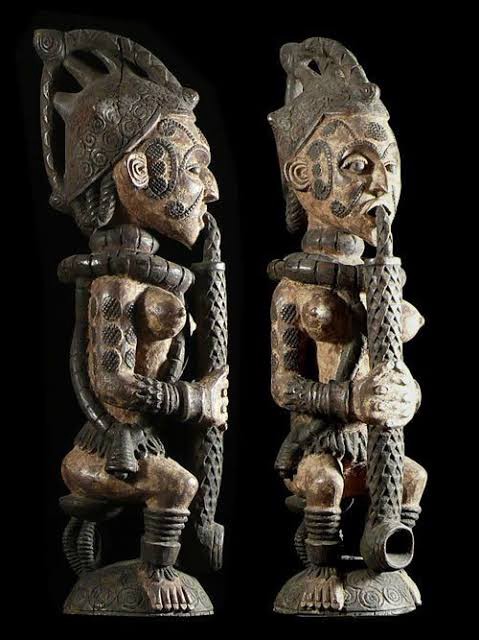
Religion before Colonization
Every tribe in Nigeria before the advent of imperialism had their own religion, which added value to their cultural heritage and was passed from one generation to another. The origin of those religions is significant to the ways of life of people, their mannerism, dressing, approach, and even their social structure.
Traditional religion and Islam preceded colonization, but when Europeans entered numerous sections of Nigeria at the end of the nineteenth century, Christianity became a force to be reckoned with. Traditional religion was extensively incorporated into the political systems of all Nigerian cultures prior to the entrance of Islam and Christianity. The monarch, chief priest, and elders of the town in Yoruba, Hausa, and Benin communities frequently decided how to enhance the community’s life by consulting the oracle. For instance, the Oba (ruler) of the Yoruba people would frequently seek advice from the babalawo (Ifa priest) on how to improve the well-being of his people.
Traditional religion became an instrument used as a check and balance in the political system. By ensuring that political leaders did not abuse their power, priests frequently mediated the rights and claims of various individuals and groups in society. Another instance in Yoruba custom is that an Alaafin may be deposed if he exercises his political position arbitrarily. The Alaafin would be given a white calabash with the words “the earth hates you, the gods reject you, and the people reject you” by the Oyo Mesi (Council of Chiefs) in collaboration with the Ogboni society.
History also has it that traditional religion also supplied a theology that connected local beliefs to the central authority and its power. However, because religion was used to legitimize political power, the ruler and ancestors were held accountable for the well-being of the entire village.
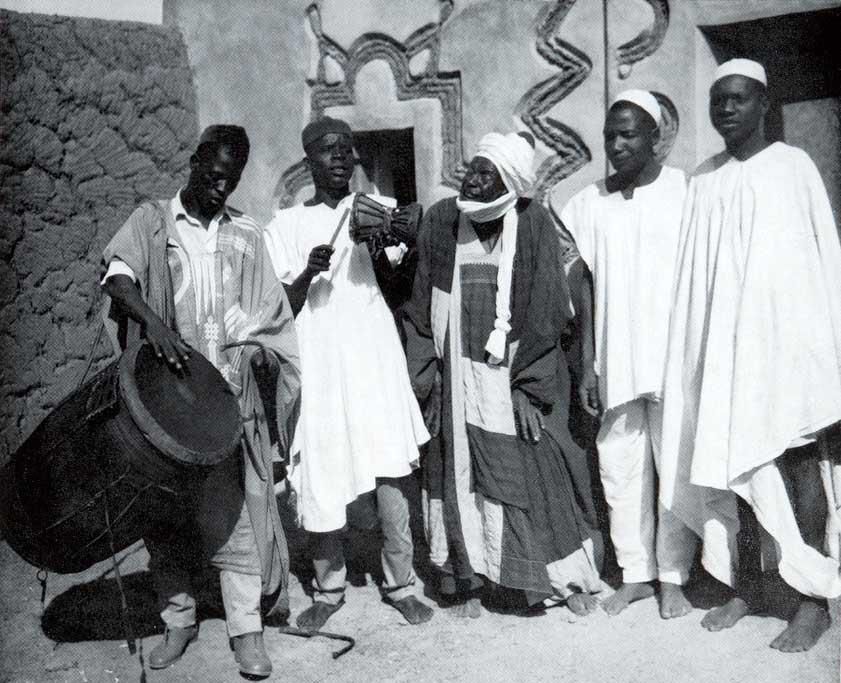
Hausa’s Religion before Colonization
Traditional religion in Hausaland used to be organized around clans. Each shrine was maintained on behalf of the town by a hereditary chief priest. According to the Kano Chronicle, traditional priests performed many ceremonies and sacrifices, particularly of food and animals. People thought that through making sacrifices, the community would be able to achieve and sustain peace and stability. The Hausa religion was based on a cult that represented a belief system centred on a single deity, Tsumburburai’s god, also known as Randaya.
Maguzawa is the dominant Hausa traditional religion, which was mostly practiced in pre-colonial Nigeria’s Hausaland. At the moment, Maguzawa is also the name of a Hausa subgroup. Maguzawa believers believe in spirits (Iskoki), who can number up to three thousand and are separated into two major factions: the Gona, which is also known as the Farm spirits, and the Daji, also known as the Bush spirits.
In this religion of Maguzawa, prevalent among the Hausas, there are six significant spirits, ranging from Babban Maza, often referred to as the pestle, meaning “great among men,” Waziri, meaning “the spirit that provides gifts to people,” and Mai’iali, who is the queen of spirits known for wearing a large cloth with children, to Sarki Aljah, known as the king of spirits.
Another religion practised by the Hausa people is “Bori,” which has to do with spirit possession. Before colonization, it was used as a spirit to heal sicknesses, which is also known as the spirit that casts out demons. Animal sacrifices were not part of the Hausa religious tradition. It also included the adoration of shrines in the woods and the use of protective charms. However, with the rise of Islam, the practice of Bori was not only discouraged but also condemned. The jihad of Uthman Dan Fodio in 1804 was sparked by Islam’s opposition to Bori.
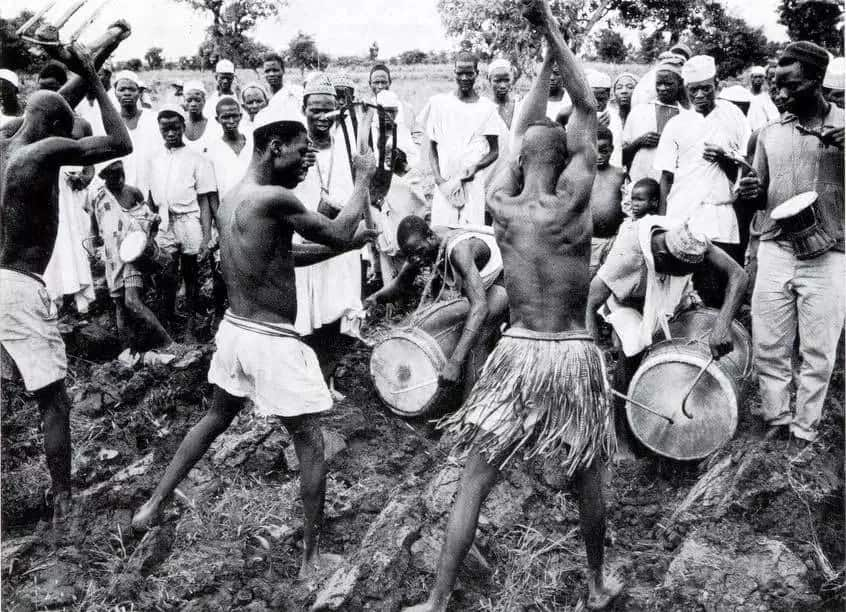
Igbo’s Religion before Colonization
There was a strong belief in ancestral worship, animal sacrifices, and grove rituals in Igbo territory. In the Igbo religion, sacrifices were made in the town to fend off bad spirits, as well as for petitions, expiation, and thankfulness. The Igbo people believed in a supernatural being who was worshipped through numerous deities or spirits such as “Anyanwu” known as the sun god, “Igwe” also known as the sky deity, and “Ale or Ane” referred to as the god of the earth. Also, ancestors were thought to have contributed to the community’s continued unity.
The Igbo religion was a blend of spiritual and human persons. Priests, diviners, and ceremonial elders who conducted religious worship and sacrifices to gods and goddesses belonged to the human category. Ancestral spirits, national hero spirits, and other deities were among the divinities. They worshipped gods and goddesses differed per community, and shrines may be found near rivers, trees, road intersections, and on hillsides and hills. They were thought to be the guardian spirit, who may be friendly or malevolent, charming or terrifying.
Furthermore, the Igbo people of southeastern Nigeria believed in Odinani, the general name for traditional Igbo religious rituals, before colonization. Odinani possessed a monotheistic quality. They believed in a single God, known to them as Chineke or Chukwu, with many spirits (or Alusi). Odinani taught that everyone had a guardian spirit named “Chi” that was assigned to them by Chineke. In Christianity, the guardian angel is the closest analogy to the “Chi spirit.” When a person died, it was thought that their Chi would follow them into the afterlife.
History has it that the Odinani priests were divided into hereditary priests, who were servants of a particular god or spirit, and seers, who were saddled with the responsibility of maintaining justice with limitless authority.
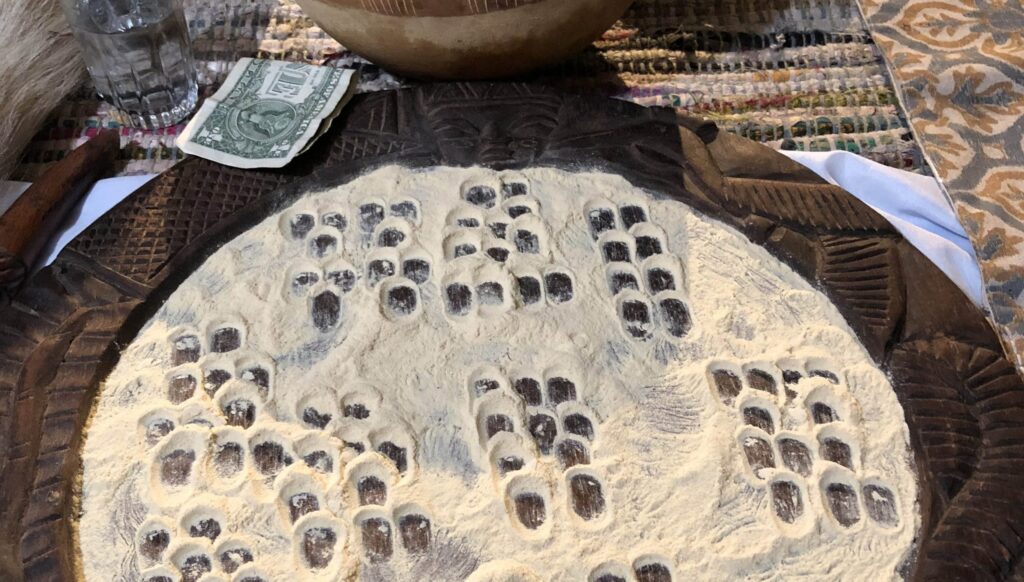
Yoruba’s Religion before Colonization
The Yoruba believe in a Supreme Being known as Olodumare or Olorun, as well as a great number of deities known as orisa in their faith. “Ifa” is often referred to as the palm-nut oracle, “Esu,” also known as the trickster and mischief-making goddess. Others include: “Obatala,” also known as Oduduwa; Ogun, the deity of iron and war; and Sonpona, the god of smallpox in Yoruba mythology.
Also, Yoruba people believe in lesser gods and spirits known as orisha, who can move between heaven and earth. They can be God’s servants or simply free spirits. The “Irunmole,” spirits supposed to be Olorun’s servants and his messengers to the human realms, are also mentioned.
The spiritual headquarters and genesis of the Yoruba religion and race are Ile-Ife, a kingdom in modern-day Osun state. Every day, many sacrifices are made here. The Oba (King) of Ile-Ife is considered to be the caretaker of over 200 gods and spirits. He is a descendent of Oduduwa, the proclaimed father of all Yoruba people.
Furthermore, Esu has protective and benign qualities and should not be confused with the devil or Satan in other religions. Sango, the deity of lightning; Oya Sango’s wife, the goddess of thunderstorms; and Orisa Oko, the patron of hunters, are among the other gods.
In the Yoruba religion, social and political incidents were discussed with Ifa; this was crucial because it served as a unifying factor. The Ifa was frequently consulted on topics involving the election of a new monarch as well as major political decisions such as war and marriage. The oracle served as the people’s court, and its decisions were binding on them. Peace, progress, stability, and success were propitiated through Ifa and the other orisas.
Furthermore, aside from consulting the Ifa in the Yoruba religion, there were other numerous divinities. Traditional belief systems revered natural phenomena such as rivers, trees, mountains, hills, iron, thunder, and lightning, but Islam and Christianity did not. In fact, various Yoruba homes have their own deities.
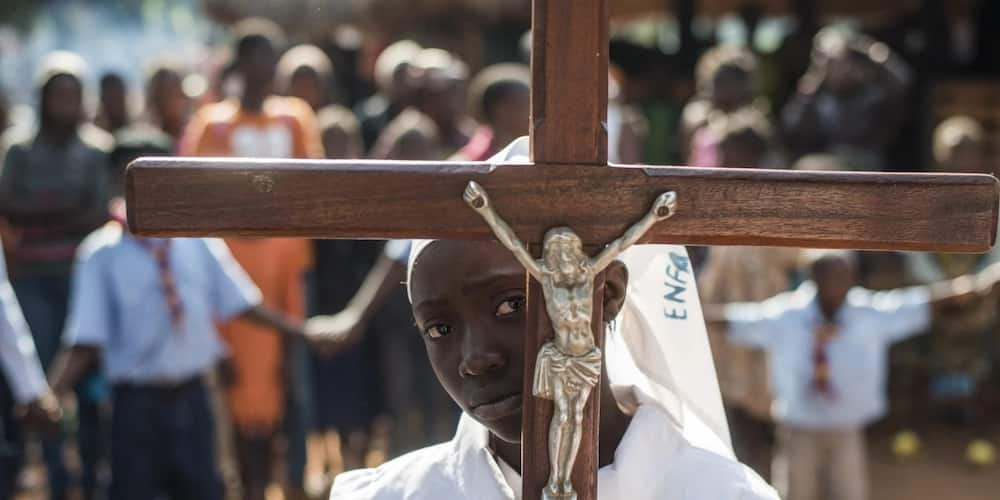
Christianity During Colonialism
The history of religion in Nigeria has undoubtedly been influenced by British colonization. In the early 15th century, white men came to Nigeria to explore. They arrived at Lagos and Benin in 1485 and the Merchants were welcomed. They discovered that Nigerians have to be civilized so as to be good customers. To them, being civilized meant being Christianized. So, their missionaries started their activities in Benin in 1515, where they built schools at Oba’s palace and new coverts, especially for princes and children of notable chiefs in the town.
Gasper, the bishop of the Diocese of Sao Tome, dispatched Augustinian monks to Warri in the same year. As a result, the son of Olu of Warri was given the name Sebastian at baptism. Sebastian succeeded his father and provided considerable support to Portuguese missionaries, while his son Domingos was sent to Portugal to be taught as a priest.
The first British Christian mission also arrived in Badagry in September 1842. The ex-slaves from Sierra Lone were involved in commerce with the Yoruba region and in propagating Christianity, and they dominated the first founded church. The missionaries, on the other hand, were in charge of education, which was used to convert people. Because, at the time, schooling aimed to produce Christians who could read the Bible and perform services.
Thus, the advent of colonialism led to the introduction of Christianity, which added to the two religions that already existed— traditional and Islamic religions. Also, western education found its way through Christianity. Although, the introduction of Christianity had its advantages and disadvantages; the advantage was that it helped to stop the killing of human beings as sacrifice to appease the gods, while one of the disadvantages was that the conversion of the traditional religion which had effects on customs and traditions.
After overpowering Lagos, the British businessmen and authorities in Lagos (a British colony) desired direct engagement or unfettered access to the interior, putting the Ijebus, who had served as middlemen, out of business. They also intended to bring Christianity to the Yoruba people in the interior. Ijebus, on the other hand, did not want any interference with their operations and saw this plan as an infringement on their sovereignty. As a result, during the acting colonial governor’s arrival in 1889, the Ijebus held a hostile demonstration. The colonial government saw Ijebus’ actions as an insult and demanded an apology.
Captain Robert Lister Bower was appointed as the first Resident and Travelling Commissioner in the Yoruba hinterland in south-western Nigeria in December 1893 in Ibadan. His responsibilities include enforcing treaties and consolidating British influence in the region. His tactics begin with threatening and Ibadan chiefs were bullied in order to persuade them to support British imperialism. In 1894, Chief Akintola, the Balogun of Ibadan, was arrested at a customary event. Chief Fajimi, the Osi Baale, was also apprehended. Chief Sanusi had been detained previously. Those commanders were held accountable for their subordinates’ clashes with British officers. Then, Chief Ogedengbe, the leader of the Ekitiparapo rebel group, and his boys were detained and then released.
Captain Bower was irritated by Alaafin of Oyo’s and his people’s resistance to submitting to British imperialism. The Alaafin was acting in his capacity as Yoruba Land’s supreme monarch. As a result, surrendering to the “Oyinbo” whites were viewed as a betrayal of his institution and culture. When Alaafin issued a ruling to castrate a man who had intercourse with Aseyin of Iseyin’s wife, the locals grabbed the chance to shell Oyo. Bower deemed Alaafin’s proclamation “barbaric,” and ordered Alaafin and his leaders to prostrate in front of him at the city market. The command was vehemently rejected by the Alaafin. Aseyin was publicly humiliated and tied. After it, in 1895, Oyo Alaafin was bombarded.
The people of Oyo Alaafin, as well as Ibadan and other major cities in southwestern Nigeria, revolted against imperialism in one manner or another. They even questioned the use of Western education as a means of conversion.
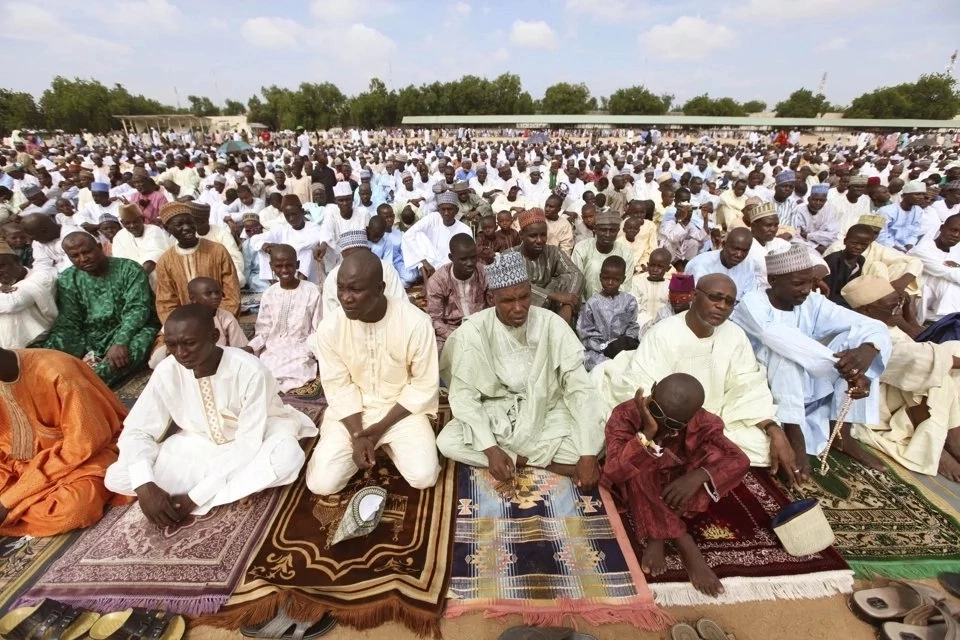
Islam During Colonialism
Islam was first introduced to northern and central Nigeria in the 11th century, and by the 16th century, it had become well entrenched in the region’s major capitals, moving into the countryside and toward the Middle Belt uplands. Before European colonialism, Shehu Usman and Fodio founded an Islamic-based administration in Northern Nigeria. As a result of the structure of this government, the British colonial government created indirect rule in Northern Nigeria. During Mansa Musa’s Mali Empire, Islam spread to Yoruba-speaking areas in the southwest.
The vast majority of Muslims in Nigeria are Sunnis who follow the Maliki school of law. However, a sizable minority follow the Shafi madhhab. [requires citation] Many Sufi brotherhoods have many Sunni Muslims as members. The Qadiriyya, Tijaniyyah, and Mouride movements are followed by the majority of Sufis. With the emergence of numerous Islamic sects in Nigeria, Islam has become more diverse. The Izala movement, the Shia movement, and many local Islamic sects with restricted spread are notable examples.
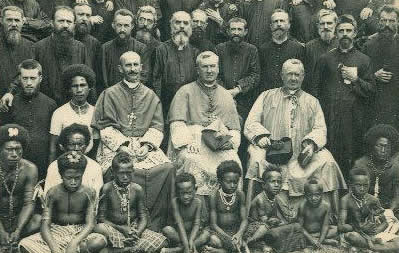
Religion During the Post Colonial Era
Nigeria is the most populous African country, with a population of about 180 million people (2015 estimates). Its population is approximately evenly divided between Christianity and Islam, with the remaining being shared by other religions. However, the exact ratio is unknown. Although the Yorubas believe that no religion can alter their traditional duties to God. Therefore, some still consult their gods in secret and even participate in open traditional ceremonies. However, the majority of Muslims here are Sunni, who dominate the northern region while Christians dominate the southern part of the country.
Christianity During the Post Colonial Era
From the 1960s until the 1980s, the majority of Nigerian Christians were protestants, such as Anglicans, Methodists, and Baptists. Of course, the British were predominantly protestants, and the Anglican church is led by the British monarch. The Catholic faith has a sizable following, accounting for around a quarter of the protestant population.
Furthermore, the Redeemed Christian Church of God, Winners’ Chapel, Christ Apostolic Church (the first Aladura Movement in Nigeria), Deeper Life Bible Church, Evangelical Church Winning All, Mountain of Fire Miracles, Christ Embassy, The Synagogue Church of all Nations, The Common Wealth of Zion Assembly (COZA), and The Aladura Church (indigenous Christian) have all seen significant growth in new generational (Pentecostal) churches from the 1990s to the 2000s.
The Assemblies of God, which were introduced into Nigeria by Augustus Ehurie Wogu and his friends at Umuahia, are popular in the Yoruba area, whereas Igboland is primarily Catholic and the Edo area is dominated by the Assemblies of God.
Islam During the Post Colonial Era
Nigerian Muslims make up one of West Africa’s largest Muslim populations. In today’s Nigeria, Muslims are so numerous that it is said that they outweigh Christians. Therefore, there are different sects in the Islamic religion, including; Sunni, Shia, Sufi, Ahmadiyya, and Quraniyoon.
During the 1980s, religious riots erupted in and around Kano in 1980, Kaduna in 1982, Bulum-Ketu in 1982, Jimeta in 1984, and Gombe in 1985. These acts of violence were carried out by the “Yan Tatsine,” an offshoot of Islam that violently rebelled against the authorities and non-members. They were inspired by Alhaji Mohammed Marwa Maitatsine, a Cameroonian preacher who criticized the regime and was jailed in 1975.
Also, from 2010 to date, Boko Haram went so far as to seize numerous local governments and declare them caliphates, murdering thousands and displacing hundreds of thousands until the Nigerian Army fought back and reclaimed the lost regions.
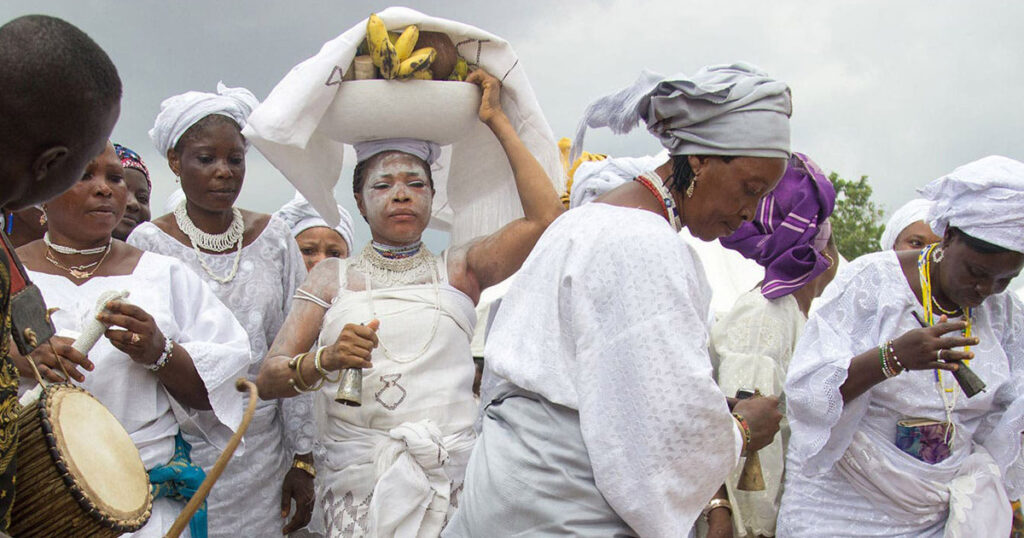
Traditional Religion After Colonization
Traditional belief systems are still extensively practised, particularly in Yorubaland’s city states and its neighbours, where a more reserved way of life prevails. It’s a religion that connects local beliefs to a central citadel authority and its sovereignty over a sphere of communities via the Monarch. In exchange for affirmation of the validity of the Oba’s reign over his subjects, the king’s seat (Oba) is accountable for the wellbeing of his territory.
Traditional carnivals are held throughout Nigeria on a yearly and seasonal basis. The Eyo celebration in Lagos, the Ojude Oba festival in Ijebu Ode, Ogun State, the New Yam festival among the Igbo tribe, the Agemo festival in Ijebu towns, several masquerade festivals across Nigeria, the Osun Oshogbo festival in Osun State, the Oro festival in Ijebu territory, and others are among them. Tourists from all around the world flock to these gatherings. The Reformed Ogboni Fraternity is an exclusive Yoruba group that has modernized Nigeria’s traditional occult Ogboni group.



